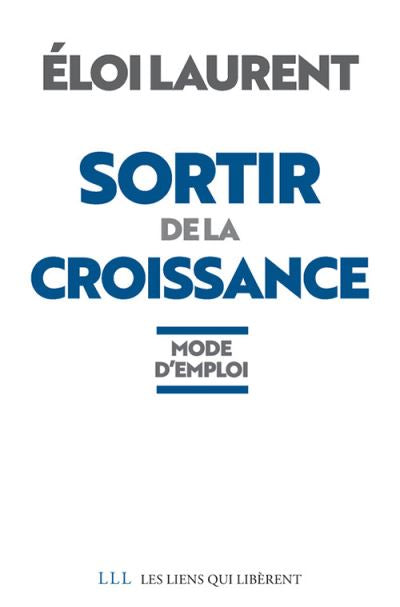Ready to blow your mind ?
I believe in the transformative power of books. Below are some books that I think will ignite your curiosity, spark your imagination, and empower you to make a difference. But what made these book game-changers for me ?
They were Knowledge Amplifiers: they provided me with new relevant information. Whether you're interested in science, history, philosophy, or ecology, they will amplify your knowledge and equip you with valuable insights.
They were Paradigm Shifters: they challenged my "conventional wisdom" and inspired new ways of thinking for me. They will encourage you to question the status quo, explore alternative perspectives, and embrace innovation. Prepare to have your mind expanded!
They were Catalysts for Change: these books have the power to inspire action. They can motivate you to step out of your comfort zone, pursue your passions, and make a positive impact in the world. These books have been carefully chosen to empower you to become a catalyst for change.
They were Personal Growth Accelerators: reading is a journey of self-discovery and personal growth. The books below provided me with valuable insights, practical tips, and actionable strategies; they helped me come closer to grasp my full potential. Get ready to embark on a transformative journey!
Remember, these books have changed my life. Are you ready to let them change yours?
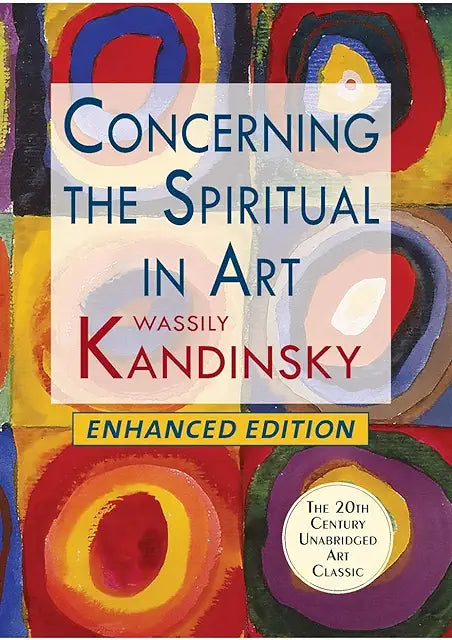
Concerning the Spiritual in Art
Of the Spiritual in Art is Kandinsky's plea for an art of a new kind: one, abstract, which finally moves away from a figurative imitation of Nature, or from art for art's sake, and becomes language to access the soul.
Art can transform man and the world. Art no longer has to be 'aesthetic' and is only good when it addresses and has access to the soul. “The creation of a work is the creation of the world. » Kandinsky represents the spiritual life as a triangle moving slowly but surely upwards. “What is today intelligible only for the extreme tip, and for the rest of the Triangle is only incomprehensible fantasies, will tomorrow, for the second section, be the content charged with emotion and meaning of its life spiritual. Sometimes there is only one man at the extreme tip of the Triangle. The joy he feels from his vision is equal to his infinite inner sadness. And those closest to him don't understand it. In their dismay, they call him an imposter and a lunatic.”
Kandinsky calls for all these forces a spiritual turning point: “When religion, science and morality are shaken and when external supports threaten to collapse, man turns his gaze away from external contingencies and brings them back on himself. Literature, music, art are the first and most sensitive areas in which this spiritual turning point will really appear. »
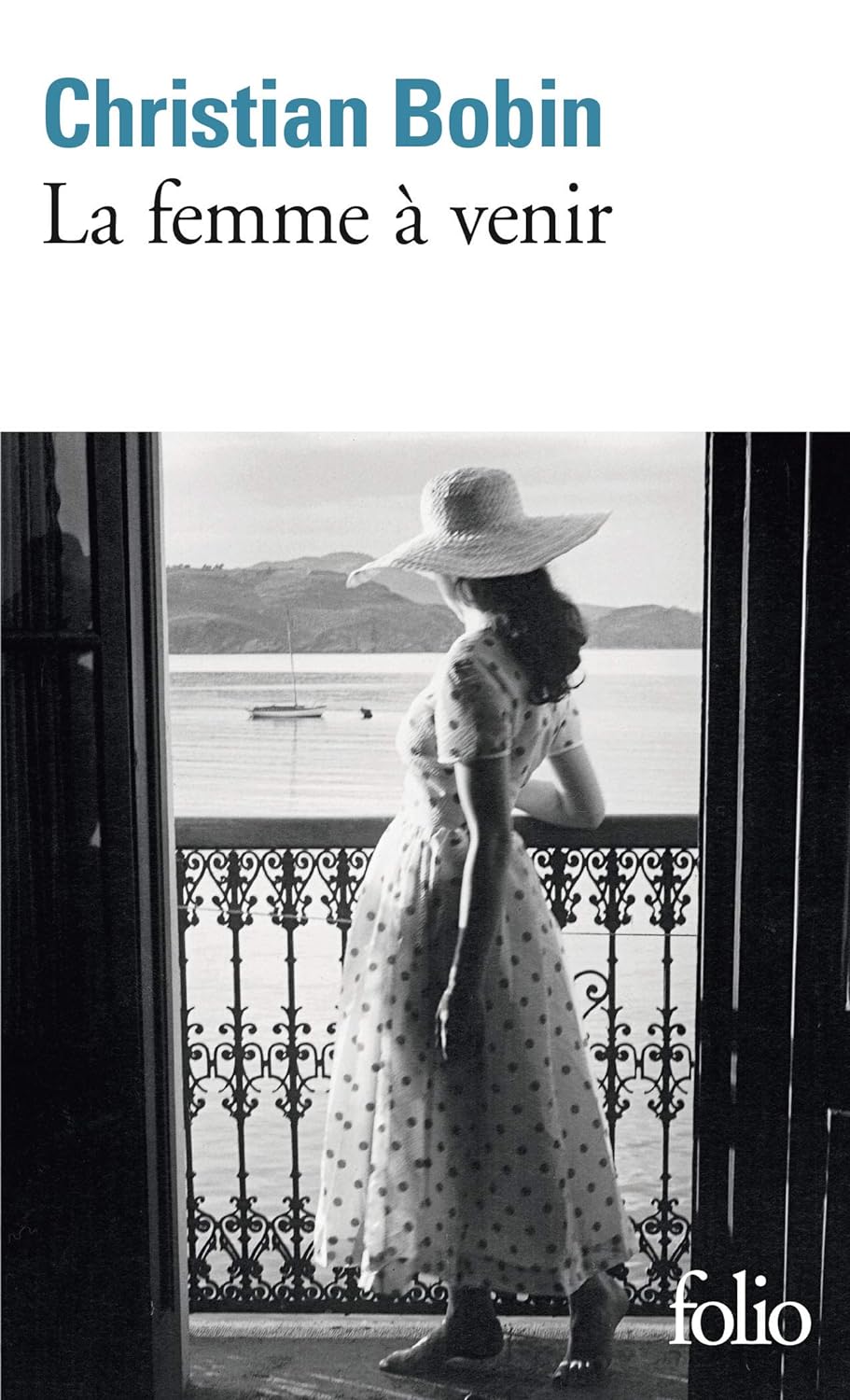
La femme à venir
"On est d'abord loin du livre, loin de la maison. On est d'abord loin de tout. On est dans la rue. On passe souvent par cette rue-là. La maison est immense. Les lumières y brûlent jour et nuit. On passe, on ne s'arrête pas. Un jour on entre. Dans la maison incendiée de lumière, dans le livre ébloui de silence, on entre. On va tout de suite au fond, tout au bout du couloir, tout à la fin de la phrase, tout de suite là. Dans la chambre aux murs clairs, dans le coeur noir du livre. On se penche au-dessus du berceau de merisier. On regarde, c'est difficile de regarder un nouveau-né, c'est comme un mort : on ne sait pas voir. On s'attarde, on se tait. On regarde la petite fille endormie dans le berceau de lumière. Albe, c'est son nom."
Christian Bobin est né en 1951 au Creusot. Il est l’auteur d’ouvrages dont les titres s’éclairent les uns les autres comme les fragments d’un seul puzzle. Entre autres : Une petite robe de fête, Souveraineté du vide, Éloge du rien, Le Très-Bas, La part manquante, Isabelle Bruges, L’inespérée, La plus que vive, Autoportrait au radiateur, Geai, La présence pure, Ressusciter, La lumière du monde et Le Christ aux coquelicots.
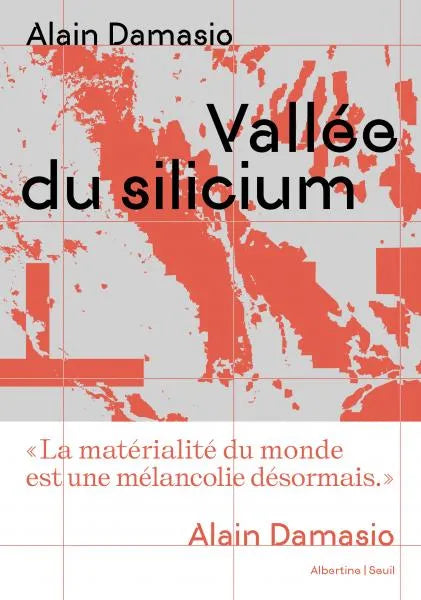
Vallée du silicium
« Ce qui manque furieusement à notre époque, c’est un art de vivre avec les technologies. Une faculté d’accueil et de filtre, d’empuissantement choisi et de déconnexion assumée. Des pratiques qui nous ouvrent le monde chaque fois que l’addiction rôde, un rythme d’utilisation qui ne soit pas algorithmé, une écologie de l’attention qui nous décadre et une relation aux IA qui ne soit ni brute ni soumise. »
À San Francisco, au coeur de la silicon Valley, l'auteur de Science-fiction Alain Damasio met à l’épreuve sa pensée technocritique, dans l’idée de changer d’axe et de regard. Il arpente « le centre du monde » et se laisse traverser par un réel qui le bouleverse.
Composé de sept chroniques littéraires et d’une nouvelle de science-fiction inédite, Vallée du silicium déploie un essai technopoétique troué par des visions qui entrelacent fascination, nostalgie et espoir. Du siège d’Apple aux quartiers dévastés par la drogue, de rencontres en portraits, l’auteur interroge tour à tour la prolifération des IA, l’art de coder et les métavers, les voitures autonomes ou l’avenir de nos corps, pour en dégager une lecture politique de l’époque et nous faire pressentir ces vies étranges qui nous attendent.
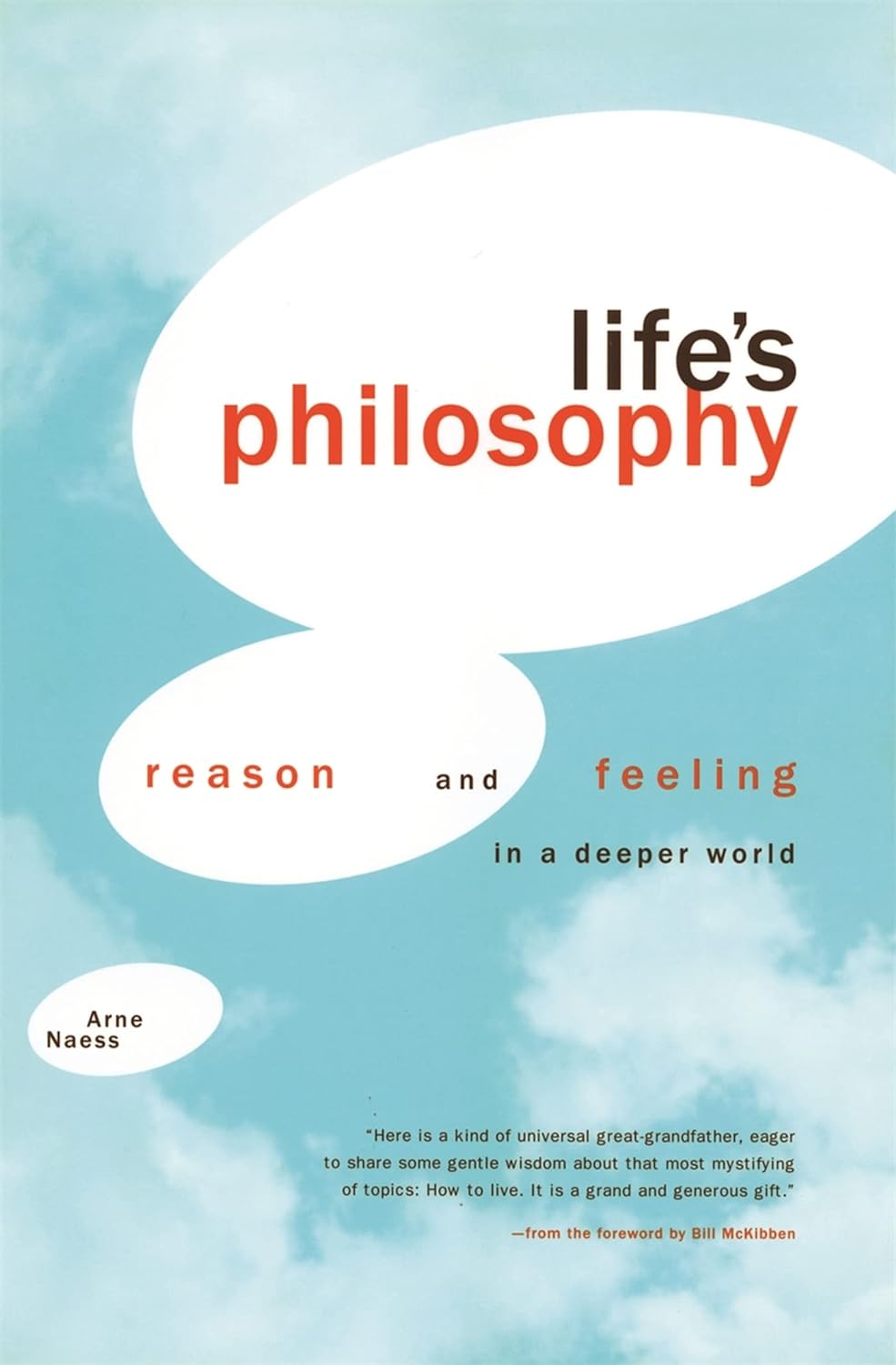
Life's philosophy
Norwegian philosopher Arne Naess's reflections on living harmoniously with the environment serve as a compelling call to action against the backdrop of ecological and cultural crises.
As he nears his 90th year, Naess presents an optimistic vision, emphasizing the critical role of emotions in driving us away from destructive practices and towards sustainable, future-oriented policies and actions. He critiques the traditional dichotomy between intellect and emotion, advocating for their unification as a means to inspire positive change. Drawing on his extensive life experiences, Naess's narrative is both playful and profound, offering insights into overcoming the challenges posed by excessive consumption, population growth, commodification, technology, and globalization.
His work is a mixture of personal anecdotes and thoughtful analysis, underpinned by a deep sense of humor and wisdom. Naess challenges the prevailing paradigms of environmental degradation, while highlighting the inherent beauty and potential of our world.
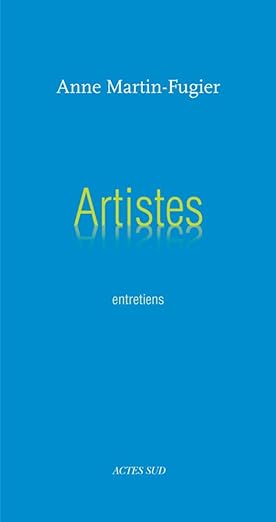
Artistes
Après «Galeristes» (2010) et «Collectionneurs» (2012), voici «Artistes», qui clôt la trilogie d’Anne Martin-Fugier sur le monde de l’art contemporain en France au début du XXIe siècle et tente de répondre à la question : qu’est-ce qu’être un artiste français à l’époque de la mondialisation ?
L’auteur a rencontré douze artistes français vivant en France, bien que certains passent beaucoup de temps à l’étranger. Si le marché mondial de l’art contemporain est euphorique, nos artistes sont trop faiblement reconnus au niveau international. Anne Martin-Fugier a voulu connaître leur état d’esprit face à la crise économique et au discours sur le déclin français.
Quelle que soit la manière dont chacun d’eux perçoit la spectaculaire accélération de la dernière décennie et sa propre situation, tous revendiquent la nécessité de préserver leur élan créatif et le plaisir qu’ils trouvent à travailler, sans lequel leur production n’aurait plus de sens.

Jetzt !
Um die Reise in die Kraft des Jetzt anzutreten, müssen wir unseren analytischen Verstand und sein falsch erschaffenes Selbst, das Ego, hinter uns lassen.
Obwohl die Reise eine Herausforderung ist, bietet Eckhart Tolle einfache Sprache und ein Frage-und-Antwort-Format, um uns zu zeigen, wie wir unsere Gedanken zum Schweigen bringen und ein befreites Leben führen können. Geben Sie sich dem gegenwärtigen Moment hin, in dem es keine Probleme gibt. Hier finden wir unsere Freude, können unser wahres Selbst annehmen und entdecken, dass wir bereits vollständig und perfekt sind.
Wenn wir in der Lage sind, vollständig präsent zu sein und jeden Schritt im Jetzt zu unternehmen, öffnen wir uns der transformierenden Erfahrung der Kraft des Jetzt.
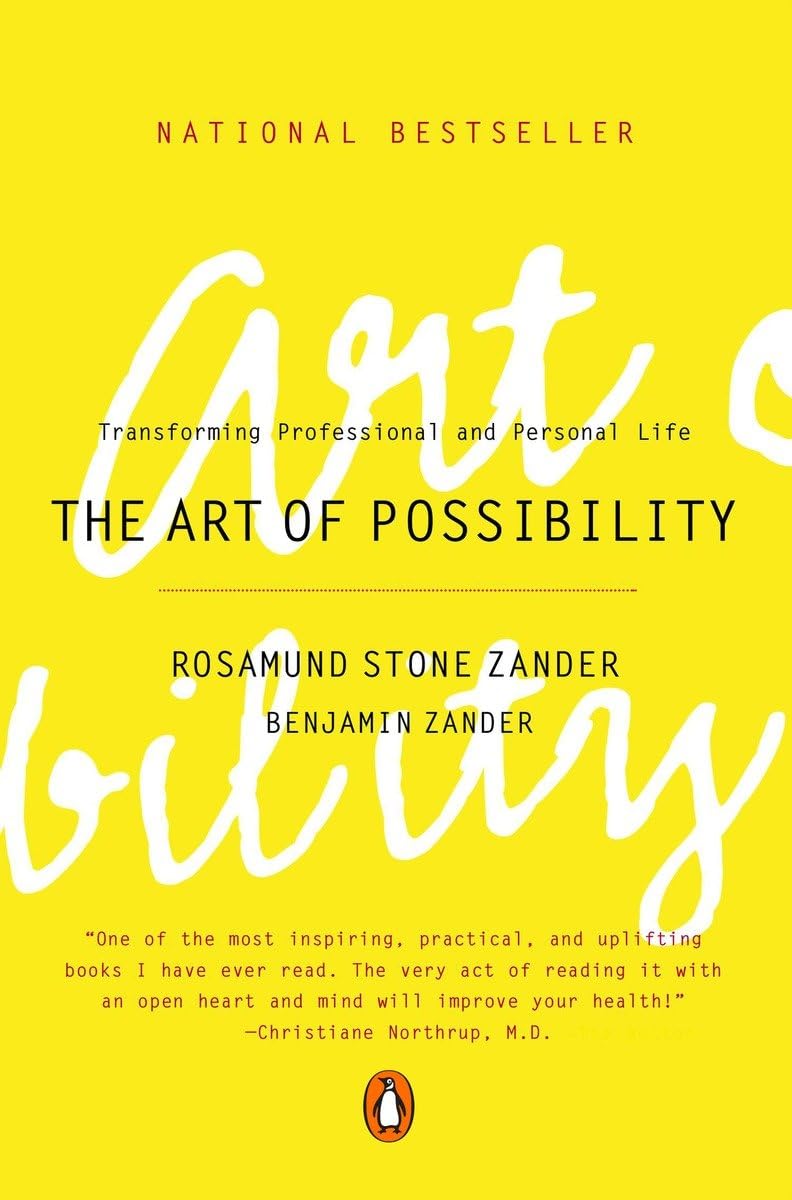
The Art of Possibility
Presenting twelve breakthrough practices for bringing creativity into all human endeavors, The Art of Possibility is the dynamic product of an extraordinary partnership.
The Art of Possibility combines Benjamin Zander's experience as conductor of the Boston Philharmonic and his talent as a teacher and communicator with psychotherapist Rosamund Stone Zander's genius for designing innovative paradigms for personal and professional fulfillment. The authors' harmoniously interwoven perspectives provide a deep sense of the powerful role that the notion of possibility can play in every aspect of life.
Through uplifting stories, parables, and personal anecdotes, the Zanders invite us to become passionate communicators, leaders, and performers whose lives radiate possibility into the world
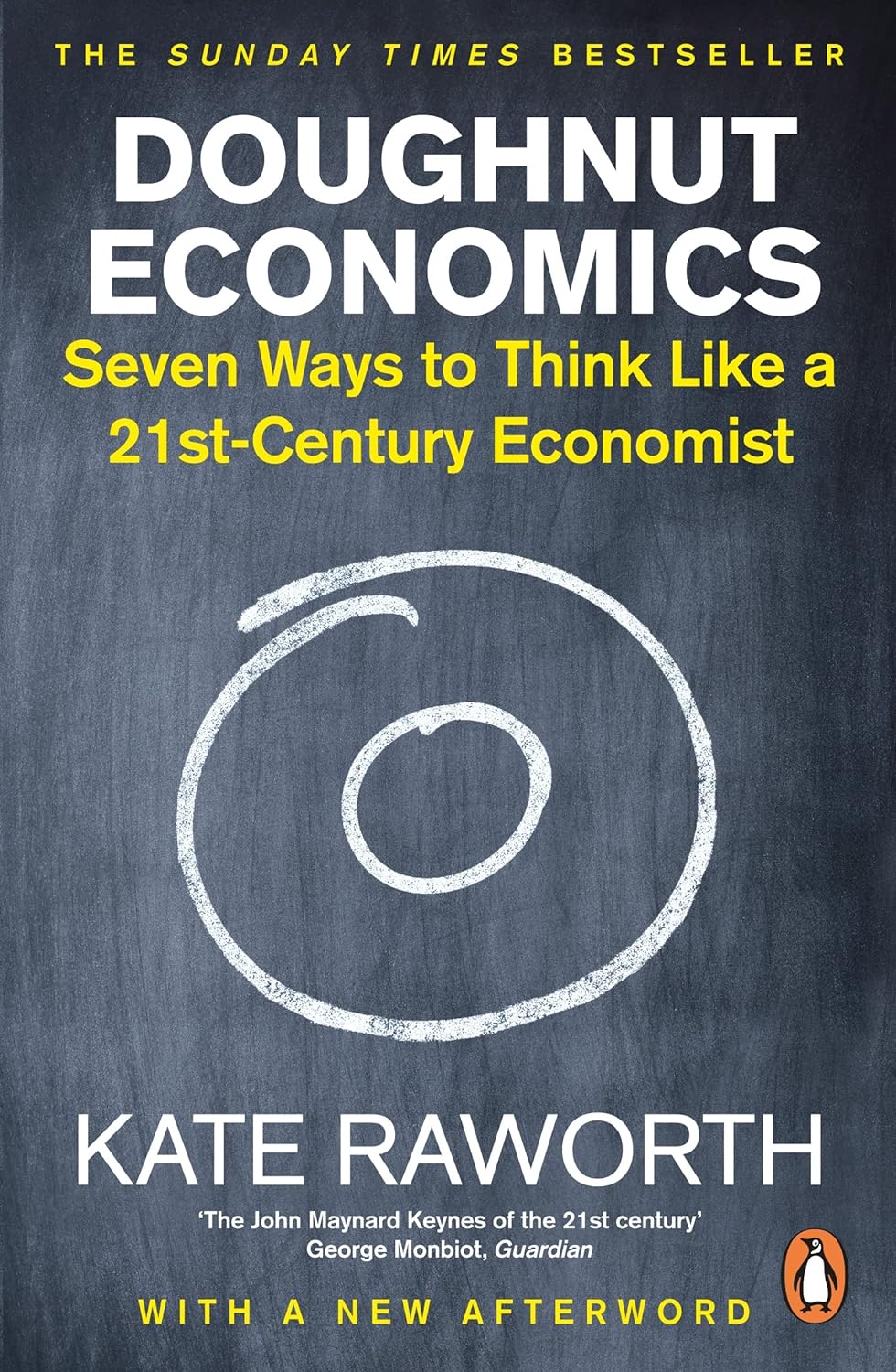
Doughnut Economics
The book that redefines economics for a world in crisis.
Relentless financial crises. Extreme inequalities in wealth. Remorseless pressure on the environment. Anyone can see that our economic system is broken. But can it be
fixed? In Doughnut Economics, Oxford academic Kate Raworth identifies the seven critical ways in which mainstream economics has led us astray - from selling us the myth of 'rational economic man' to obsessing over growth at all costs - and offers instead an alternative roadmap for bringing humanity into a sweet spot that meets the needs of all within the means of the planet.
Ambitious, radical and provocative, she offers a new cutting-edge economic model fit for the challenges of the 21st century.
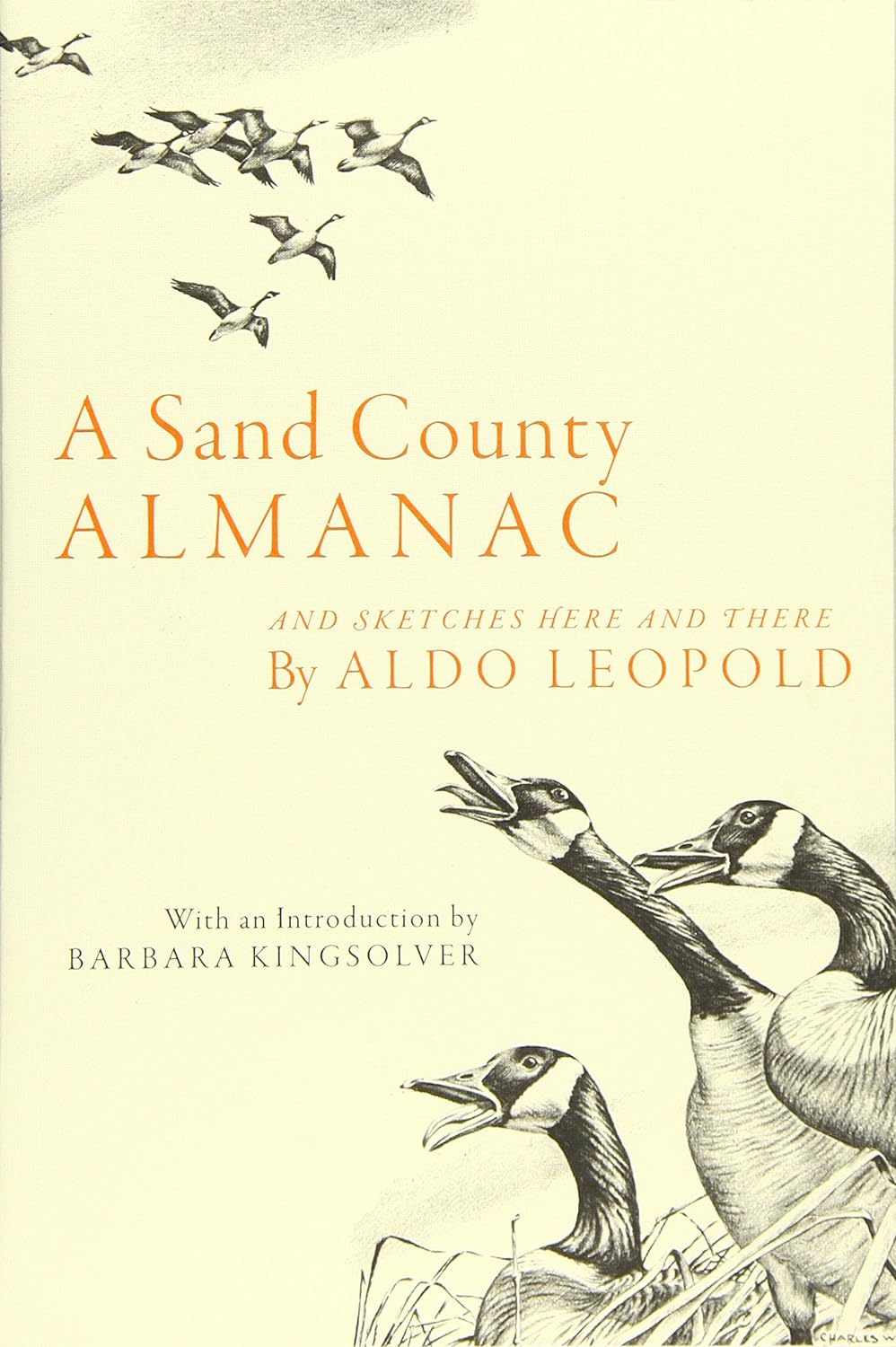
A Sand County Almanac
Few books have had a greater impact than A Sand County Almanac, which many credit with launching a revolution in land management.
Written as a series of sketches based principally upon the flora and fauna in a rural part of Wisconsin, the book, originally published by Oxford in 1949, gathers informal pieces written by Aldo Leopold over a forty-year period as he traveled through the woodlands of Wisconsin, Iowa, Arizona, Sonora, Oregon, Manitoba, and elsewhere; a final section addresses the philosophical issues involved in wildlife conservation.
Beloved for its description and evocation of the natural world, Leopold's book, which has sold well over 2 million copies, remains a foundational text in environmental science and a national treasure.
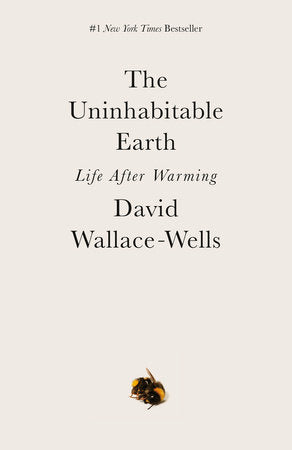
The Uninhabitable Earth
For David Wallace-Wells, it is worse, much worse, than you think.
The slowness of climate change is a fairy tale, perhaps as pernicious as the one that says it isn't happening at all, and if your anxiety about it is dominated by fears of sea-level rise, you are barely scratching the surface of what terrors are possible, even within the lifetime of a teenager today.
Over the past decades, the term "Anthropocene" has climbed into the popular imagination - a name given to the geologic era we live in now, one defined by human intervention in the life of the planet.
But however sanguine you might be about the proposition that we have ravaged the natural world, which we surely have, it is another thing entirely to consider the possibility that we have only provoked it, engineering first in ignorance and then in denial a climate system that will now go to war with us for many centuries, perhaps until it destroys us. In the meantime, it will remake us, transforming every aspect of the way we live-the planet no longer nurturing a dream of abundance, but a living nightmare.
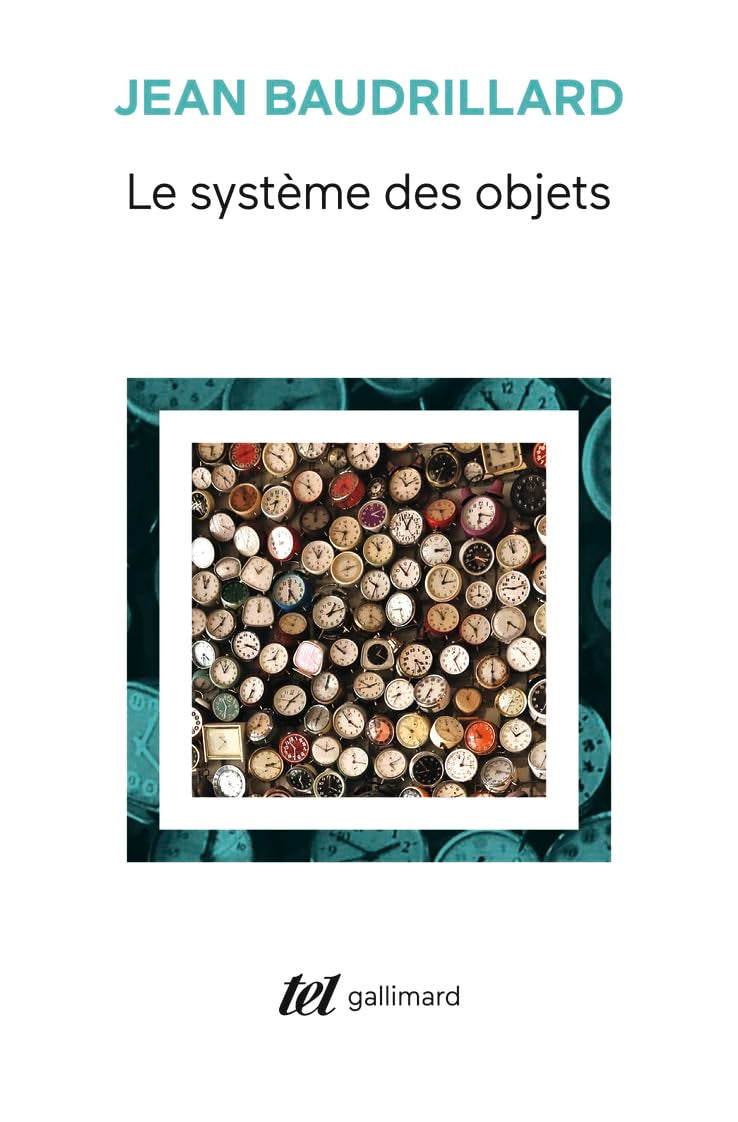
Le système des objets
Pour Jean Baudrillard, "Les objets en particulier n'épuisent pas leur sens dans leur matérialité et leur fonction pratique.
Leur diffusion au gré des finalités de la production, la ventilation incohérente des besoins dans le monde des objets, leur sujétion aux consignes versatiles de la mode : tout cela, apparent, ne doit pas nous cacher que les objets tendent à se constituer en un système cohérent de signes, à partir duquel seulement peut s'élaborer un concept de la consommation.
C'est la logique et la stratégie de ce système d'objets, où se noue une complicité profonde entre les investissements psychologiques et les impératifs sociaux de prestige, entre les mécanismes projectifs et le jeu complexe des modèles et des séries, qui sont analysées ici."
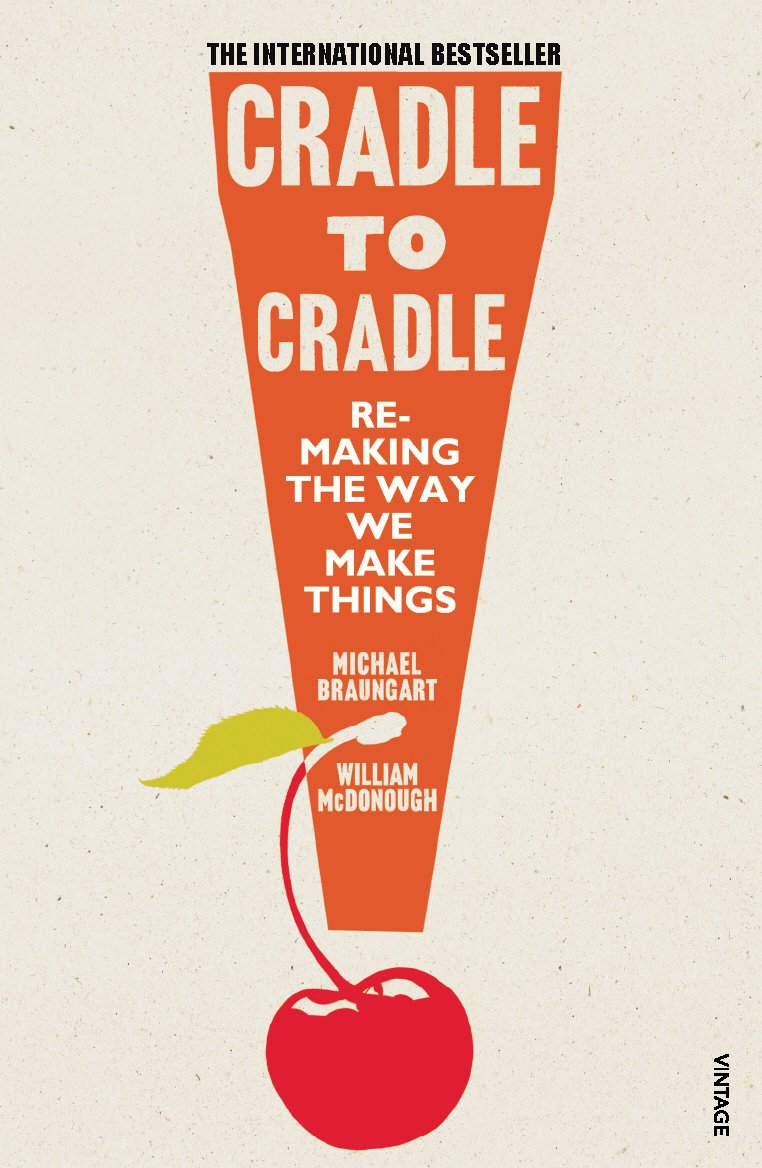
Cradle to Cradle
Recycling is good, isn’t it? In this visionary book, chemist Michael Braungart and architect William McDonough challenge this status quo and put forward a manifesto for an intriguing and radically different philosophy of environmentalism.
"Reduce, reuse, recycle”. This is the standard “cradle to grave” manufacturing model dating back to the Industrial Revolution that we still follow today. In this thought-provoking read, the authors propose that instead of minimising waste, we should be striving to create value. This is the essence of Cradle to Cradle: waste need not to exist at all.
By providing a framework of redesign of everything from carpets to corporate campuses, McDonough and Braungart make a revolutionary yet viable case for change and for remaking the way we make things.
